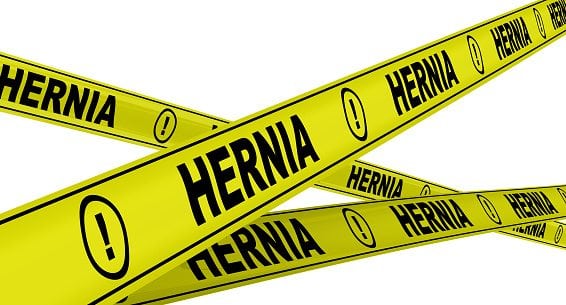Dr. Chike Chukwumah, director of the Hartford Hospital Hernia Center, answers your questions about hernias.
Q: What is a hernia?
A: A hernia is a defect that can occur in various muscles/tissues of the body. It is different from a muscle sprain/strain. A hernia does not heal or fix itself. It can occur spontaneously, can be the result of trauma or secondary to a previous surgical incision.
Q: Explain the different types of hernias.
A: Hernias are usually described based on location. Commonest locations are at the belly button (umbilical), above the belly button (epigastric) and at the groin (inguinal). If there is previous incision present at site of hernia, it is referred to as incisional.
Q: What are the signs and symptoms of a hernia?
A: Signs usually include asymmetry or presence of a lump that may be reducible or non-reducible.
Symptoms depend on what organs or structures come through the defect. These may include discomfort or sharp pain, if the defect contains fatty tissues that are well innervated, nausea or bloating if contents are small intestine, constipation if content is large intestine, urinary frequency if the urinary bladder is involved. Symptoms may be aggravated by strenuous physical activity or activities that cause raised intra-abdominal pressure.
Q: What should you expect when having hernia surgery?
A: Expectations are based on the complexity of hernia and repair. For non-complex hernias, a minimally invasive approach is typically utilized, which would involve same day surgery with small incisions. Complex hernia repair could be done with a minimally invasive approach or require a large incision, but involves a hospital stay which can range from 5-7 days.
Hernia repair typically involves placement of a mesh. This is the standard of care to prevent recurrence.
After any hernia repair, a period of restriction from strenuous physical activity and weight lifting is indicated to allow appropriate healing of the repair.
Need more information? Visit us online at our Hernia Center.

